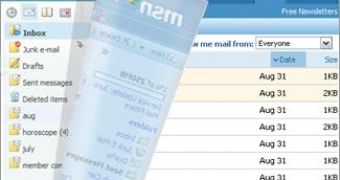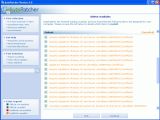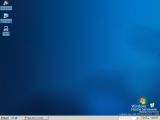Unfortunately for the Redmond-based company, the week started with some sad news for its fans: Firefox blocks the access to Windows Live Hotmail without any warning. Actually, it bans two of the most used features, blocking the users from composing or replying messages. The folks working at Microsoft confirmed the glitch and added that it's all about a Firefox extension that is not compatible with the full version of Hotmail. Adblock, the Firefox add-on that limits the Hotmail functionality, is used by millions of users to remove the adverts placed on the websites. Because of that, it wrongly bans Hotmail so the only solution to access the mail product is to disable the extension or access the inbox using Internet Explorer. Ellie Powers-Boyle, Program Manager, added that you can also switch to the classic version of Hotmail because it is 100 percent compatible with Adblock.
"The Hotmail team does cross-browser testing, including full Firefox testing - it's important to us that you can get to your e-mail from anywhere. Unfortunately, it's not possible to test every browser add-on, so sometimes things break, and thanks for your prompt reports of this problem! While we do not condone suppression of advertising in our product (advertising does fund our product) we realize that users who have enabled this add-on may not understand why Hotmail stopped working," the Microsoft official sustained on Monday.
As you might have heard, even the Sunnyvale company Yahoo, which recently released the final version of its Yahoo Mail technology, has problems with its product. It seems like the new Yahoo Mail is blocked by some parental controls, the only solution being to manually add the service into the allowed websites list. Obviously, the Yahoo team is working on it but there's no deadline for the improvement.
It's well known the fact that Microsoft is one of the companies which are very affected by software piracy especially because most of the attackers are attempting to crack Windows. But here comes the WGA, Microsoft secret bodyguard that is meant to protect the operating system for malicious people looking to trick the software giant. However, on Tuesday it was proved that even this application is vulnerable and a simple glitch can reveal no less than 12,000 pirated copies of Windows. Sort of? Because a problem with the program made it to wrongly flag all the Windows operating systems which were connected to it to be activated as counterfeited, no matter if they were licensed or not.
"Our data shows that fewer than 12,000 systems were affected worldwide and that many of those have already revalidated and are fixed. This is encouraging news but we want to emphasize that one bad customer experience is one too many and that we're committed to learning from this experience and working to prevent this type of event from occurring again," a post on the WGA blog reads.
"This validation failure did not result in the 30-day grace period starting and no one went into reduced functionality mode as a result. The experience of a system that failed validation in this instance was that some features intended for use only on genuine systems were temporarily unavailable. Those features were Windows Aero, ReadyBoost, Windows Defender (which still scanned and identified all threats, but cleaned only the severe ones), and Windows Update (only optional updates were unavailable; security and other critical updates remained available). Also, the desktop message about failed validation appeared. And as I indicated, these features return to normal and the desktop message disappears when an affected system is revalidated at our site."
If you have never heard of it, AutoPatcher is, or better was, the best alternative for the classic Microsoft Windows auto-update feature because it brought all the downloads rolled out by the Redmond company at your click. Basically, it downloaded the fixes and allowed you to select which one you want to install. Well, as the AutoPatcher producer wrote on Wednesday, the application is only history now because Microsoft demanded them to stop the project and remove the download of the program.
"Today we received an e-mail from Microsoft, requesting the immediate take-down of the download page, which of course means that AutoPatcher is probably history. As much as we disagree, we can do very little, and although the download page is merely a collection of mirrors, we took the download page down," the official page of the product reads.
Personally, I expected this move a long time ago because AutoPatcher became very popular and even replaced the classic auto-update offered by Microsoft. Since the Windows function was useless, the Redmond company had to do something in order to keep it the first solution for its customers.
Nowadays, every Internet giant wants to get involved into social networking websites or chat applications because they attract the biggest amount of users. And Microsoft does the same. That's why the software giant announced on Thursday that it will acquire Parlano, the creator of MindAlign - an application especially meant to enhance the communication in the enterprise market, but the financial terms were not disclosed. Obviously, this would also represent an important step made by Microsoft into the enterprise industry, a special side of the market that can bring considerable amounts of money to the companies that offer the most attractive solutions.
"Parlano has been successful in meeting the rigorous communications needs of companies in financial services and other vertical markets. Parlano's expertise and technology, added to Microsoft's unified communications offering, will deliver customers the most complete presence, instant messaging and group chat solution on the market," said Gurdeep Singh Pall, corporate vice president of the Unified Communications Group at Microsoft. "Parlano has helped many organizations enhance operations, improve service delivery and increase sales through more effective ongoing group communication, collaboration and knowledge sharing," added Nick Fera, chairman and chief executive officer of Parlano.
On Friday, Todd Headrick, the product planner for the Microsoft Windows Home Server, published a somehow sad post on the official blog of his software solution. It seems like Windows Home Server will be delayed because the parent company Microsoft and HP discovered some new technologies that can be implemented in it in order to obtain better performance and results.
"We've identified a number of ways to make the product even better since the initial release, As with most Microsoft products, updates to Windows Home Server will be automatically available throughout the lifecycle of the product and the WHS team is working on an update that will be available in September. These updates will enhance the usability and improve the out-of-the-box experience of home server solutions. Additional updates will occur over the lifespan of the product as we receive feedback from the user community, our hardware partners and software partners. Microsoft's current plan is to make this update available as part of the monthly Windows Updates process in September," the message reads.
Obviously, there is no official date for the release so, if you're one of the fans expecting Windows Home Server, read the latest news on Softpedia to find out what happens next.

 14 DAY TRIAL //
14 DAY TRIAL // 

